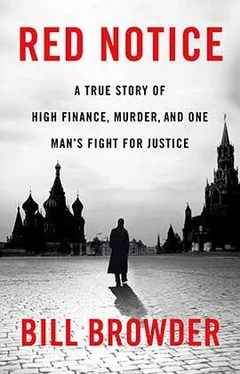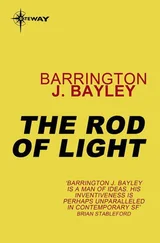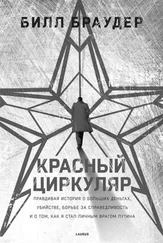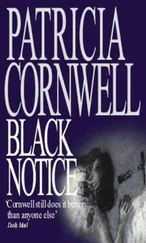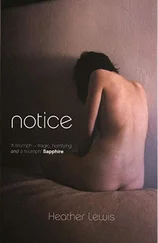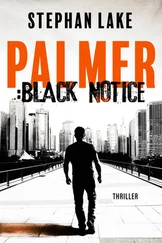This was huge news, but I wasn’t in a state of mind to celebrate. Another person connected to this case had just died. I tried to bottle up my feelings about Perepilichnyy as best I could and joined the team to congratulate them on their hard work. I spent a few minutes talking about the vote and the next steps, but I didn’t want to tell them about Perepilichnyy until I could digest the implications.
I returned to my office, put my head in my hands, and tried to make sense of what I’d just learned. Had Perepilichnyy been murdered? Were his killers still in the United Kingdom? Were they going to come after us? As much as I wanted to start making calls to people who could help me figure all these things out, I couldn’t. I had to be at the New Diorama Theatre in forty-five minutes to host the play about Sergei that was taking place that night.
I went to the theater and attempted to push all my dark thoughts to the back of my mind. I made my way into the lobby, passing the brightest stars of London’s human rights community — MPs, government officials, celebrities, artists, as well as close friends. We all took our seats and watched. The play was moving and powerful, and when it was over, three special guests and I carried folding seats onto the stage and began a panel discussion. The panel consisted of Tom Stoppard, the famous playwright; Vladimir Bukovsky, a former Russian political prisoner; and Bianca Jagger, Mick Jagger’s ex-wife and a respected human rights activist.
Stoppard and Bukovsky shared their story about how Stoppard had written a play in the 1970s that helped free Bukovsky from a Soviet psychiatric prison. Using Sergei’s story, they pointed out that after all this time almost nothing had changed in Russia.
Speaking last, I said to the audience, «Indeed, the situation in Russia is dire, but today there is one small ray of light. Just a few hours ago, the US House of Representatives voted on the Sergei Magnitsky Rule of Law Accountability Act to sanction the people who tortured and killed him. I’m proud to say that the bill passed with eighty-nine percent of the votes».
I’d planned to say more, but was cut off by an outburst of applause. One by one, people rose from their seats, and before I knew it, everyone was standing. They were applauding the campaign, but more than that, they were applauding this tiny bit of justice in the world. I couldn’t help but be moved, and I stood and started clapping too, along with everyone else.
I shook hands and accepted congratulations as I made my way out of the theater, but all I could think of was getting home. I’d told Elena about Perepilichnyy on my way to the play, and more than anything I needed to talk to her.
When I got home, I found Elena sitting on the couch staring blankly at the living-room wall. It is never good to see terror in the face of one you love, but that was exactly what I witnessed in Elena that night. We were home, our children were asleep, and we were theoretically safe — but I was sure that Perepilichnyy had thought the same at his house in Surrey.
The next morning, I spoke to my London lawyer, Mary, and we agreed that we should alert the Surrey police as soon as possible. They had to understand that this case involved high-level Russian corruption and organized crime. Perepilichnyy wasn’t someone who just dropped dead.
Mary drafted a letter, stressing that Perepilichnyy was a cooperating witness in a major Russian money-laundering case and might have been poisoned as Alexander Litvinenko had been in 2006. She urged the police to do a toxicology analysis as soon as possible.
Mary faxed the letter on Saturday, heard nothing on Sunday, and followed up on Monday with a call to the Weybridge police station. The duty officer confirmed that they’d received her letter, but strangely told her they had no record of any death involving someone named Perepilichnyy.
I thought that was absurd and asked Mary to get someone more senior who knew what was going on. She made more calls, and this time the police confirmed that Perepilichnyy had in fact died on November 11 on the private road near his house, but they were unwilling to discuss any other details. Mary pointed out that we had information that could be helpful to their investigation, but the police simply took her number and said that they would get back to us if they needed to.
By Wednesday, the police still hadn’t contacted Mary. That day, I heard from Marcel that the initial postmortem results for Perepilichnyy had come back inconclusive. The coroner couldn’t determine a cause of death. No heart attack, no stroke, no aneurysm. Perepilichnyy had just died.
This was worrying for one reason in particular: just before his death, Perepilichnyy had told us that he was on a Russian hit list and had been receiving death threats, making it reasonably likely that a Russian assassin was on the loose in the UK. If he’d gotten to Perepilichnyy, then he could just as easily get to us.
Mary hounded the police for the rest of the week but was continually rebuffed. I was so upset by the following Monday that I asked her what we could do to get them to act. Her advice was simple: «Go to the press». Normally lawyers advise you to stay away from the press in these situations, but it was such a matter of public interest, and the police were being so unresponsive, that in her opinion we didn’t have any other choice.
That day, I got in touch with an investigative journalist at London’s Independent newspaper and told him the whole story. I provided him with the documentation that Perepilichnyy had given us, and a list of phone numbers that he could use to verify different parts of the story.
Two days later, the Independent ran a story with the headline «Supergrass Who Held Key to Huge Russian Fraud Is Found Dead in Surrey» [15] Supergrass is British slang for «informant».
. Perepilichnyy’s face covered the entire front page of the newspaper. Inside were a further five full pages describing every part of the story. The story ricocheted between every television station, radio show, and newspaper in the United Kingdom. Everyone was terrified that Russian organized criminals were settling scores on the streets of London.
Immediately after these stories came out, the Surrey police finally sent two homicide detectives to our office to interview us. Then, twenty-one days after Perepilichnyy died, the police announced they would do a full toxicology analysis on his corpse. In my mind this came way too late. If he’d been poisoned, by now it could be undetectable.
With a major homicide investigation under way and the press all over the case, whoever did this to Perepilichnyy would have been spooked and surely gone to ground. While the threat level was still high, I was no longer in a state of panic and felt comfortable enough to refocus on my responsibilities.
The Senate vote in Washington was now only days away. While I couldn’t be there to witness it, I was going to be in the United States to give a speech at Harvard and to have some meetings in New York.
I flew to Boston on Sunday, December 2, and when I got off the plane, an urgent message from Kyle was on my BlackBerry. I called him as I walked toward immigration.
«Hey, Bill. What’s up?» he said.
«I got your message. Is there something wrong?»
«Possibly. There are a number of senators who are insisting on keeping Magnitsky global instead of Russia-only».
«What does that mean for us?»
«Well, it’s not just Cardin anymore. There’s a growing group of senators led by [Jon] Kyl and [Carl] Levin who are also insisting on the global version».
«But I thought the whole Senate was behind it».
«There’s no question that we have the votes, Bill. But if there’s no consensus on which version to put up, Harry Reid won’t schedule a vote», Kyle said, referring to the Senate majority leader. «And the clock’s ticking».
Читать дальше
